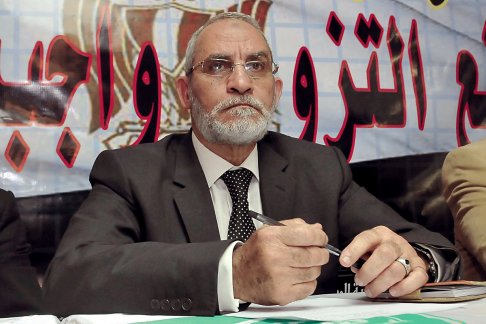CAIRO: Egyptian NGOs are finalizing copies of shadow reports on Egypt s human rights situation ahead of the Sept. 1 deadline for submissions to the United Nations Human Rights Council (HRC).
The HRC is an inter-governmental body of 192 members established in 2006.
Under the HRC s Universal Periodic Review mechanism, individual member states human rights records are examined periodically via contributions from various sources including a report from the government concerned as well as shadow reports submitted by domestic NGOs.
Egypt s record is due for review in 2010.
Al-Masry Al-Youm reported Sunday that the report drawn up by the governmental National Council for Human Rights contains all the recommendations contained in its last four annual reports.
The six-page shadow report submitted by the Egyptian Organization for Human Rights (EOHR) meanwhile details legislation which facilitates the perpetration of human rights violations or which is not in accordance with Egypt s international human rights treaty obligations.
The report also lists violations in several areas including freedom of opinion and expression, labor rights, the right to a fair trial and the right to personal freedom and safety.
Though EOHR was one of the 23 Egyptian NGOs which formed a coalition to draw up a joint shadow report, EOHR has not signed the final draft because of what EOHR secretary general describes as “problems in the tone of the report.
Head of EOHR Hafez Abu Seada told Daily News Egypt that the “coalition report should reflect the views of all coalition members, but the language used is political and we object to this.
“In particular we object to the two-page introduction which makes generalized allegations without providing proof, and which is not objective. For example it says that ‘security bodies interfere in every aspect of life in Egypt’ without providing evidence to back this up, Abu Seada said.
“The tone of some of the language used was also problematic. For example the report refers to torture as a ‘horrific crime.’ This is not the correct language to use in a human rights report.
Abu Seada says that EOHR responded by sending their own version of the introduction which was rejected by other coalition members.
“There was a take it or leave it approach during coalition discussions. I reject this kind of cooperation – we have to reach common ground, Abu Seada said.
Aida Seif El-Dawla, a psychiatrist with the Nadeem Center for the Rehabilitation of the Victims of Violence who was involved in the drafting of the report, expressed surprise at Abu Seada s comments, which also appeared yesterday in daily Rose El-Youssef.
“This comes as a total surprise to me, especially given that I attended the last meeting in the presence of the EOHR representative. I was entrusted with a redrafting of the disputed section and I believe I was sincere to the comments EOHR made during that meeting. There was no disagreement regarding the content, only regarding the tone and language, Seif El-Dawla told Daily News Egypt.
Seif El-Dawla remains optimistic that Coalition members will be able to reach a consensus.
“The deadline for submission of the report is still on Tuesday. Right now negotiations are going on with EOHR. We realize that there are differences within the group, but none, to my knowledge, that would hinder the release of a joint report. We shall continue trying until the date of the deadline and I hope we reach consensus, she said.

